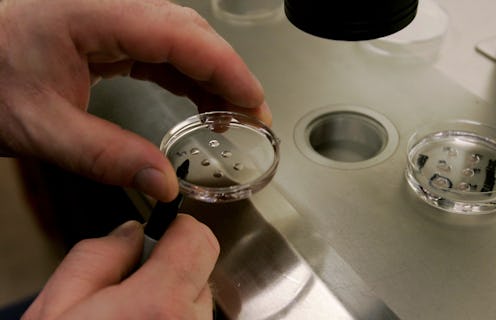News
Fewer Women Looking For Infertility Help
Science and technology are propelling advancements and higher success rates for women looking to conceive, but a new study shows that fewer women in the United States are seeking help with infertility. A National Health Statistics report from the Centers for Disease Control and Prevention says the percentage of females looking for infertility services dropped significantly in the last three decades. There's been an increase in the number of options made available to women, whether it's in vitro fertilization or donor eggs, but higher awareness hasn't resulted in higher use of the services, including simple resources like asking a doctor for advice.
Women ages 25 to 44 had the most notable dip in numbers, with 17 percent having never used infertility services, compared to 20 percent in 1995. The study also found 38 percent of childless women who have trouble conceiving sought fertility help, compared to 56 percent in 1982.
What's equally striking is how economic and educational disparities affect women's search for infertility choices. Poor, nonwhite, and less educated women are among the least likely of those seeking services, while wealthier females were inclined to look for help with infertility. Money and insurance could play a role in the barriers some face, since procedures can cost thousands of dollars.
The survey questioned 22,682 men and women, ages 15-44, from 2006 to 2010. Researchers found that among women who did ask for help, the most commonly used services were ovulation drugs, testing, advice, and medical help to prevent miscarriages. We can also count on these apps to help us out at home.
The newly reported decline comes at time when pregnancy rates for women — including teens — continue to drop. A lot of us are delaying marriage and childbirth, perhaps as the focus shifts from starting a family to careers and other interests. Surprisingly, though the number of ladies seeking help has changed, but infertility rates haven't. As NBC reported last August:
Infertility rates have come down a little bit,” says Dr. Anjani Chandra, researcher at the NCHS, part of the Centers for Disease Control and Prevention. “That surprises people because they think it is going up. In fact, it really hasn’t been the case...
“Contrary to popular perceptions based on infertility service use and media coverage about biological clocks, we still don’t see that,” Chandra told NBC News.
It hasn’t changed for men, either.
Biological clock horror stories be damned!
Image: Gateway-Women
